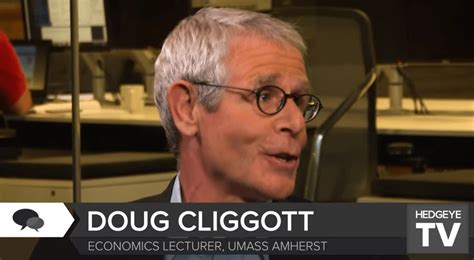A Quote by Alex Berenson
It's one of the fundamental principles of the stock market: When interest rates go up, stocks go down. And along with financial companies and cyclicals, technology companies - with their sky-high price-to-earnings multiples - should be among the biggest losers in an environment of rising rates.
Related Quotes
The other dynamic keeping the stock market up - both for technology stocks and others - is that companies are using a lot of their income for stock buybacks and to pay out higher dividends, not make new investment,. So to the extent that companies use financial engineering rather than industrial engineering to increase the price of their stock you're going to have a bubble. But it's not considered a bubble, because the government is behind it, and it hasn't burst yet.
The underlying strategy of the Fed is to tell people, "Do you want your money to lose value in the bank, or do you want to put it in the stock market?" They're trying to push money into the stock market, into hedge funds, to temporarily bid up prices. Then, all of a sudden, the Fed can raise interest rates, let the stock market prices collapse and the people will lose even more in the stock market than they would have by the negative interest rates in the bank. So it's a pro-Wall Street financial engineering gimmick.
Since 2008 you've had the largest bond market rally in history, as the Federal Reserve flooded the economy with quantitative easing to drive down interest rates. Driving down the interest rates creates a boom in the stock market, and also the real estate market. The resulting capital gains not treated as income.
The key is if the economic data stays soft, maybe we don't have to worry much about interest rates anymore. Then we need to worry about earnings. What gave us a really strong move in stock prices from late May until about two weeks ago was this heightened optimism that maybe interest rates are at that high. That gave you a relief rally. Now reality is setting in - if we've seen the worst on interest rates then we've seen the best on earnings.
Near the top of the market, investors are extraordinarily optimistic because they've seen mostly higher prices for a year or two. The sell-offs witnessed during that span were usually brief. Even when they were severe, the market bounced back quickly and always rose to loftier levels. At the top, optimism is king, speculation is running wild, stocks carry high price/earnings ratios, and liquidity has evaporated. A small rise in interest rates can easily be the catalyst for triggering a bear market at that point.
There are several things that can create an alpha - stock buybacks are one. High dividend yields are another, especially nowadays because the stock market yields more than the banks and the tenure treasury. But by and large, it tends to be companies with a strong cash flow, rising sales, accelerated earnings, a profit margin expansion.
Credit card companies are jacking up interest rates, lowering credit limits, and closing accounts - and people who have made timely payments are not exempt. So even if you pay off your balance - and that's tough when interest rates are insanely high - there's a good chance your credit limit will be slashed, and that will hurt your FICO score.






























